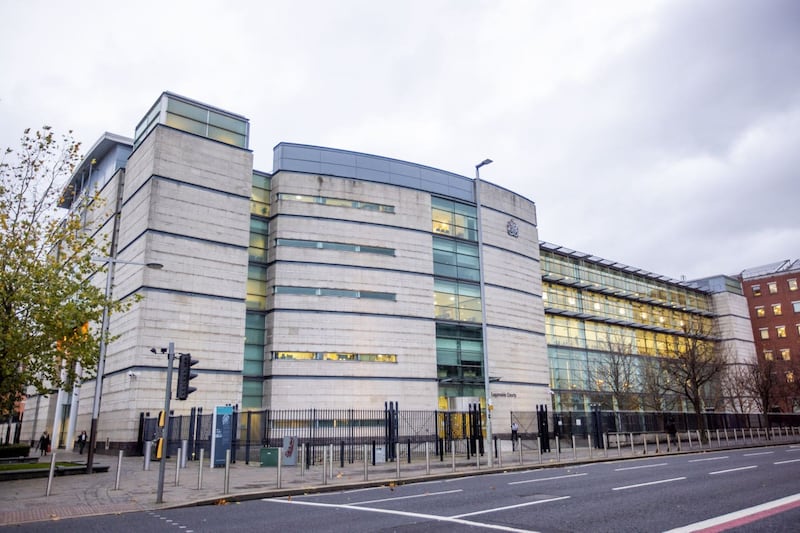A former soldier accused of two murders on Bloody Sunday has appeared in court for the first time since he was charged, as his lawyers attempted to have the case thrown out.
Ex-paratrooper Soldier F, who cannot be identified, is accused of murdering James Wray and William McKinney when members of the Parachute Regiment shot dead 13 civil rights protesters on the streets of Derry in January 1972.
He is also charged with five attempted murders.
The veteran was present in Court 16 of Belfast Crown Court on Friday for a pre-trial hearing before Mr Justice Fowler.
He sat in the witness box, with a thick floor-to-ceiling blue curtain shielding him from the main body of the court to protect his anonymity.

Relatives of Bloody Sunday victims packed out the public gallery having travelled to the hearing from Derry. SDLP leader Colum Eastwood also attended proceedings.
The no bill proceedings saw the defence make an application for the case to be dismissed ahead of a trial.
Representing Soldier F, Mark Mulholland KC argued that there was an “insufficiency of evidence” against his client.
He went on to claim that contemporaneous statements from other soldiers involved in the events of Bloody Sunday, which the prosecution sought to rely on, were “contradictory and flawed”.
Mr Mulholland told the judge that the case against the veteran was absent of a “coherent evidential basis” to ground any of the seven charges he was facing.
Earlier, the judge heard an application for anonymity and screening provisions applied to Solider F to be extended.
Justice Fowler had already granted an interim extension pending ventilation of fuller legal arguments on the issue.
Ian Turkington KC, who is also part of the veteran’s defence team, told the court Soldier F would be seen as a “prized target” for dissident republicans and claimed there would be a “real and immediate risk” to his life if his identity was made public.
The defence relied on expert reports compiled by former assistant chief constable of the Police Service of Northern Ireland Alan McQuillan.
Mr McQuillan, who gave evidence to the court via video-link, told the judge that the prosecution of Soldier F had assumed “totemic” status.
He warned that the New IRA, which he said was based out of Derry, could seek to target him.

The former senior officer said the risk would increase if the former soldier was ultimately acquitted at trial.
“There will always be a risk because, convicted or acquitted, there will always be those who would want vengeance, but if he was acquitted the impetus would be even greater,” he said.
The prosecution has adopted a neutral stance in relation to the application for continued anonymity and screening.
NI Public Prosecution Service (PPS) barrister Louis Mably KC highlighted that the current police assessment of the risk to Soldier F was “low”.
He also suggested that the court could consider other measures – such as allowing Soldier F to be named during court proceedings, but prevent the media from reporting the name; or continue with anonymity of his name but make him appear in court without screening.
The judge said he would keep the interim extension of anonymity and screening in place pending him ruling on the issue.
A date for Soldier F’s trial is yet to be fixed.
Bloody Sunday was one of the darkest days in the history of the Northern Ireland Troubles.
Thirteen people were killed on the day and another man shot by paratroopers died four months later.
Many consider him the 14th victim of Bloody Sunday but his death was formally attributed to an inoperable brain tumour.
The PPS previously called a halt to the prosecution of Soldier F in 2021, citing concerns the case could collapse if it went to trial.
The decision to halt proceedings was challenged by Mr McKinney’s family and the Divisional Court of the High Court in Belfast subsequently overturned the PPS’s move.
After reviewing its position, the PPS decided to resume the prosecution.







